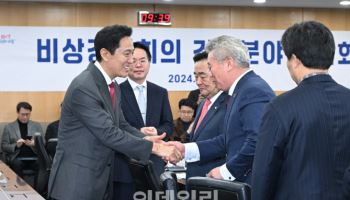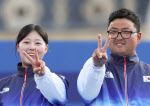|
노무현 대통령은 한 번 이상 사태에 대한 공식적인 조의 발표를 했으며, 외무부 또한 “말로 설명할 수 없는 놀라움과 충격”이라는 표현으로 조의 성명을 발표했다. 미국에 파견된 한국 대사는 개개인 희생자를 추모하는 의미에서 현지 교민들에게 32일의 릴레이 금식을 제안했다.
이 사건을 지켜보면서 내가 이야기를 나눈 첫 한국인과 동료들은 무례하지 않게 희생자 가족들을 보상할 수 있는 방법이 궁금하다고 했다. 한국에서는 노동의 땀과 눈물을 상징하는 돈을 모아 전달하는 것이 의미가 있지만, 미국인들은 이것을 오해할 수 있고 노여움으로 반응할 수도 있다는 것이 그의 의견이었다.
희생자들을 추모하기 위해 사람들은 거리로 나와 촛불을 켰다. 이 모습이 서울에서 CNN을 통해 방송되었을 때, 뉴스앵커는 자신의 객관성을 잠시 접어두고 인상적이라고 말하기도 했다.
사건 발생지와 너무나 먼 곳에 있는 사람들이 보여준 이 폭넓은 정중함은 대다수의 한국인이 느끼는 미국과의 깊은 관계에서 비롯된 것이다. 그 어느 다른 국가와는 이 같은 관계를 볼 수가 없다. 무례함을 담고 하는 이야기는 절대 아니지만, 미지의 농촌에서 실리콘 밸리로 이어지는 근대 한국의 역사는 미국의 성공이야기라고 할 수 있다.
실제로 한국사회에서 자주 발견되는 반미감정은 약했고 지나치게 의지했었던 자신들의 근대 역사에 대한 치욕과 좌절감에서 비롯된 것이다. 표현방식에도 불구하고, 이것은 그 어떠한 미국의 잘못보다는 자신들과 자국의 리더들을 향한 노여움인 것이다.
그러나 더 중요한 것은 이번 사태를 향해 한국인들의 반응은 자신들의 집단적인 책임감을 반영한다. 조승희 군의 정신상태와는 상관없이 그가 한국인이었기 때문에, 한국인들은 그의 행동에 대해 깊이 속죄해야 한다고 느끼고 있다.
그러나 이와 같은 집단적인 책임감은 양국의 생각의 확연한 차이를 보여준다.
보복에 대한 우려를 예를 들어보자. 놀라움과 충격을 담은 외무부의 공식 성명서에는 “만약을 대비하여 미국에 있는 교민들을 위해 안전조치를 마련했다”고 전했다. 미국에서 공부하고 있는 자식을 둔 한국부모들은 전화를 통해 외출하지 말 것을 당부했다.
어제 날짜 신문 헤드라인들은 이와 같은 걱정을 담아 “한국인들, 인종보복을 두려워한다” 라고 전하기도 했다.
미국신문들도 이와 같은 두려움을 기사화했다. 그러나 이들의 걱정은 격리된 상황에서 아시아인들에게 욕설을 퍼붓거나, 폭력을 가하거나, 혹은 총격을 가할 수 있는 몇몇의 백인인종차별주의자들과 학교 내의 왕따 주도자들에게 제한한 것으로, 국적이 아닌 인종에 대한 정의에 머무는 것인 것에 반해 한국인들의 두려움은 더욱 큰 것이다.
한국 정부관계자들과 시민들은 이번 사건이 한국인의 비자면제를 고려하고 있는 미국에게 부정적인 영향을 주거나 미국의회에서의 FTA 비준을 어렵게 하는 것이 아니냐고 걱정한다.
더 나아가 2014년 평창동계올림픽 유치계획이 큰 차질을 빚을 것이라고 말한다.(이것에 대해 많은 외국인들은 한국이 이번 사건으로 자국의 경제 손실만을 걱정하고 있다며 불쾌해 하고 있다. 어떤 이는 한국은 희생자들은 전혀 고려하지 않고 있다는 노여움이 가득 담은 이메일을 내게 보내오기도 했다.)
다시 말해, 한국인들은 인종차별적인 공공의 의견들이 (미국 현지의)오피니언 리더, 정치인, 그밖의 의사 결정자들이 한국을 상대로 부정적인 조치를 취하도록 압력을 받는 것에 두려워 하고 있다.
그 이유는 한국에서는 그런 식으로 진행이 되기 때문이다.
생각해보자. 2002년 두 명의 한국소녀들이 미군차량으로 인해 죽었을 때 한국인들은 미국 대사관 밖에서 단체로 촛불 집회를 열었다. 운동가들은 그들의 시신들의 모습이 담긴 사진을 보여주며 분위기를 고조시켰고, 몇주를 그렇게 보냈다.
이것이 교통사고에 대한 그들의 반응이었다.
당시 노무현 대통령 후보는 운동가들의 행동이 가진 넌센스를 지적하는 대신, 이들과 사진을 찍기도 했다.
무서운 일은 한국의 정치가, 관료, 검사, 세금 공무원들도 이와 똑같은 이유로 결정을 한다는 사실이다. 그래서 그들이 미국이 똑같이 반응할 것이라고 생각하는 것은 당연하다.
공공의 의견이 잘못된 방향으로 진행되는 것을 반대하는 것보다, 공무원들은 그 의견을 순종하지 않는 것에 대한 비판을 무서워한다. 바로 이것이 한국의 민주주의 발전의 단계의 수준을 보여준다.
그러나 미국은 민주주의에 있어서 더 많은 역사와 전통을 지닌 국가이다. 이것은 개인의 책임에 대한 개념에 정통해 있음을 시사한다. 그리고 미국인에게 있어서 조승희 군은 한국인의 피는 아무런 의미가 없다. 왜냐하면 사실 한국인의 피, 미국인의 피라는 것은 없기 때문이다. 우리는 모두 인간이며, 국가에 대한 우리의 멤버십은 지형적인 것으로 오늘날의 세계에 이것은 그 중요성을 잃어가고 있다.
조승희 군은 문제가 있었던 젊은 남자였다. 바로 그게 미국인들이 볼 시각이며, 문제가 발견되기 전에 정신병자들의 치료방법과 총기 단속에 대한 문제를 논의할 것이다.
그러나 미국인들은 한국을 비난하지 않을 것이다.
내가 말할 수 있는 것은 그들이 사건 이후를 어떻게 대응하는지를 가까이 지켜보면서 주의를 기울이자는 것이다.
마이클 브린(인사이트 커뮤니케이션즈 컨설턴츠 대표이사)
<영어원문>
Koreans Should Not Fear Backlash
In response to the massacre at Virginia Tech on Tuesday of staff and students by the deranged gunman Cho Seung-hui, South Koreans responded with characteristic grace.
President Roh Moo-hyun commented more than once, offering his condolences. The foreign ministry expressed its “indescribable surprise and shock.” The Korean ambassador to the United States proposed that Korean-American Christians conduct a relay fast for 32 days, one day for each of the victims.
The first person I spoke to said he and fellow Koreans were wondering how they could compensate the families in a way that would not be considered offensive to Americans. In Korea, it would be appropriate to collect money. Cash represents the sweat and tears of your labor and offering it is meaningful. But he worried that Americans might misunderstand such a gesture and react angrily.
Some people came out and lit candles in memory of the victims. When this was reported from Seoul on CNN, the news anchor was sufficiently moved to drop her usual objectivity and say how impressive it was.
This broad graciousness, from people so remote from the crime, partly comes from the profound connection that the majority of Koreans feel with the United States.
No country has had a better ally. The paddy-fields-to-Silicon-Valley story of modern South Korea is, it can be said without insult to Koreans, an American success story, too.
In fact, the anti-American feeling that surges every so often in Korea derives from the shame and frustration that in its modern history Korea was so weak that it over-depended. Despite the way it gets expressed, it comes from anger with themselves and their leaders rather than from any real American offense.
But more significantly, the response to the killings reflects the sense of collective responsibility felt by Koreans. Mad or not, Koreans feel that, as Mr. Cho’s blood was Korean, they, in part, must atone for his actions.
But while Americans may be touched, this Korean sense of collective responsibility illustrates a profound difference in thinking between the two countries.
Take, for example, the concern about reprisals. In its first statement of surprise and shock, the foreign ministry also reported that it had “established safety measures for ethnic Koreans in the US in case of contingencies.” Korean parents called their children studying in America to warn them to stay indoors.
American newspapers have also run stories about such worries. But while the American concern is about a few rednecks and campus bullies, who may abuse, beat or even, in very isolated cases, shoot Asians - racists by definition judge by race not nationality - the Korean concern is broader.
Government officials and ordinary citizens worry that the incident will negatively influence US consideration of the visa waiver program for Koreans and make it less likely that Congress would ratify the KORUS FTA.
It’s even been suggested that Pyeongchang’s bid for the 2014 Winter Olympics may be damaged. (This suggestion has annoyed many foreigners who believe that Korea only really cares about whether the economy is damaged. “They don’t care about the victims,” one person said to me in an angry email.)
In other words, Koreans fear that racist public opinion will pressure opinion-leaders, politicians and other decision-makers to take action against Korea.
That’s because that’s how it is here.
Consider: in 2002, when a US military vehicle ran over two girls in a street, Koreans came out en masse to hold candles in protest outside the American embassy. Activists displayed pictures of the bodies to stir up passions. It went on for weeks.
This was in response to a traffic accident!
Instead of saying what idiots they were, presidential candidates with the notable exception of the eventual winner, Roh Moo-hyun, posed for pictures with them.
When the vehicles two operators, both Americans, were found not guilty by an American military tribunal, of intentional manslaughter, one of my Korean colleagues, an otherwise sensible man, was so angry, he said that they should have been handed over to Korean courts and jailed even if they were innocent to assuage the “feelings of the people.”
The scary thing is that politicians, bureaucrats, prosecutors, and tax officials in this country are driven to make decisions for precisely this kind of reason. No wonder, then, that they expect America to be the same.
Rather than standing up and changing the direction of an ill wind of opinion, officials fear criticism for not obeying it. That’s how it is here at this stage in democratic development.
But, America has had more time at democracy. It is well versed in the notion of individual responsibility. In truth, for Americans, Mr. Cho did not have Korean blood. To be truthful, there is no such thing as Korean blood or American blood. We are all human beings. Our membership of a nation is just a geographical factor and one that in today’s world is becoming increasingly unimportant.
Mr. Cho was a young man who snapped. That’s how Americans will see it. They will argue about how to treat such madmen before they go crazy. And they will argue about gun control.
But they will not blame Korea.
All I can say is that we should observe closely how they deal with the aftermath, and take note.
By Michael Breen(The president of Insight Communications Consultants)



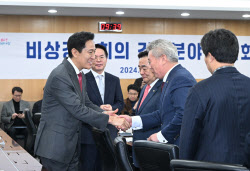
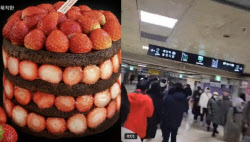
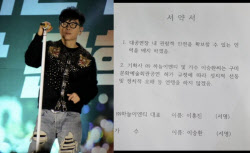


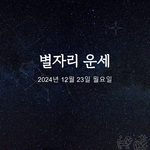
![[포토]은행권 소상공인 금융지원 간담회](https://image.edaily.co.kr/images/Photo/files/NP/S/2024/12/PS24122300609t.jpg)
![[포토]인사청문회 출석한 마은혁 헌법재판관 후보자](https://image.edaily.co.kr/images/Photo/files/NP/S/2024/12/PS24122300404t.jpg)
![[포토]아침 영하 10도, 꽁꽁 얼어붙은 도심](https://image.edaily.co.kr/images/Photo/files/NP/S/2024/12/PS24122300843t.jpg)
![[포토]스케이트 타는 시민들로 북적](https://image.edaily.co.kr/images/Photo/files/NP/S/2024/12/PS24122200317t.jpg)
![[포토]기름값 10주째 올라…전국 휘발유 평균 1652.2원](https://image.edaily.co.kr/images/Photo/files/NP/S/2024/12/PS24122200258t.jpg)
![[포토]크리스마스 분위기](https://image.edaily.co.kr/images/Photo/files/NP/S/2024/12/PS24122200248t.jpg)
![[포토]'서울광장 스케이트장 좋아요'](https://image.edaily.co.kr/images/Photo/files/NP/S/2024/12/PS24122000768t.jpg)
![[포토] 나인퍼레이드 캠페인](https://image.edaily.co.kr/images/Photo/files/NP/S/2024/12/PS24122000496t.jpg)
![[포토]더불어민주당 최고위원회의 개최](https://image.edaily.co.kr/images/Photo/files/NP/S/2024/12/PS24122000232t.jpg)


![[포토]안소현-김성태 본부장,취약계증 후원금 전달식 진행](https://spnimage.edaily.co.kr/images/vision/files/NP/S/2024/12/PS24121400036h.jpg)
